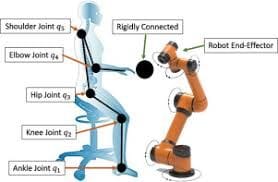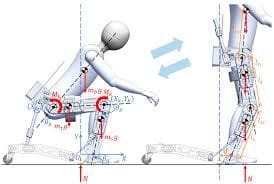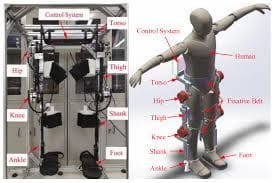In a period overwhelmed by man-made reasoning (artificial intelligence) and mechanical technology, inquiries concerning machines’ capacity to adjust, learn, and show human-like propensities have acquired conspicuousness. While robots are intended to deal with information, execute orders, and improve productivity, they frequently show mechanical tendencies that mirror their modified nature. These propensities can incorporate inflexibility, consistency, and an absence of close to home getting it. This brings up the issue: can promptness, or the capacity to answer rapidly and unexpectedly, assist with combatting these mechanical tendencies and make robots more versatile and sympathetic?

This exposition investigates whether quickness can offset the customized unbending nature of robots and upgrade their capacity to work in human-focused conditions. It assesses the impediments of man-made intelligence’s mechanical propensities, the job of quickness in further developing responsiveness, and whether these headways can repeat the capacity to appreciate people on a deeper level and certified association.Does immediacy assist with combatting with robot s inclined tabo mechanical Sadhvi inclinations?
Understanding Mechanical Tendencies in Robots
Mechanical propensities allude to the anticipated and rule-bound ways of behaving showed by robots. Not at all like people, who work with profound profundity and instinct, robots depend on calculations to handle data and produce reactions. These cycles frequently focus on productivity and rationale over compassion and moral thinking.
For example, independent vehicles and artificial intelligence chatbots follow pre-characterized choice trees to execute errands. While viable, these frameworks frequently battle in circumstances that require imagination, profound subtlety, or moral judgment.Does immediacy assist with combatting with robot s inclined tabo mechanical Sadhvi inclinations?
The person Roz in Peter Earthy colored’s clever The Wild Robot gives an imaginary investigation of these difficulties. Roz, a robot abandoned in the wild, at first acts typically founded on her programming. Be that as it may, through experience and variation, she starts to show ways of behaving looking like sympathy and profound association, bringing up issues about whether robots can rise above their mechanical nature through learning and promptness.
The Role of Immediacy in Enhancing Robotics

Quickness alludes to the capacity to process and answer upgrades progressively. Present day simulated intelligence frameworks utilize progressed sensors, AI, and brain organizations to settle on immediate choices. Models include:
- Autonomous Vehicles – Vehicles utilize constant sensors to identify hindrances, change speed, and explore traffic.
- Medical services Robots – man-made intelligence driven clinical gadgets screen patient vitals and convey therapies with split-second accuracy.
- Emergency Response Systems – Robots and robots conveyed in a fiasco zones survey harm and salvage survivors progressively.
These applications feature the viability of promptness in working on mechanical execution. Nonetheless, they additionally uncover a fundamental restriction: robots succeed at practical undertakings yet frequently neglect to get a handle on friendly and profound signs.
Can Immediacy Overcome Mechanical Inclinations?
While instantaneousness further develops responsiveness, it doesn’t be guaranteed to resolve the more profound issue of mechanical inclinations. Robots can respond rapidly, yet their choices are much of the time in light of examples as opposed to instinct. This qualification raises basic difficulties:
- Lack of Emotional Depth – Human collaborations are established in compassion, weakness, and close to home getting it. Robots, notwithstanding their speed, come up short on capacity to legitimately deal with feelings. For instance, computer based intelligence chatbots can examine opinion in text yet can’t really encounter trouble or satisfaction.
- Contextual Blind Spots – Quickness depends on information driven calculations, which might flop in circumstances requiring social mindfulness, humor, or moral thinking. A robot could answer speedily yet improperly, featuring its reliance on pre-set guidelines.
3.Ethical Ambiguities – Speedy independent direction doesn’t ensure moral thinking. For example, self-driving vehicles should pursue split-subsequent options in mishaps, yet their programming focuses on measurable results as opposed to moral qualities, bringing up issues about responsibility.Does immediacy assist with combatting with robot s inclined tabo mechanical Sadhvi inclinations?
Notwithstanding these impediments, quickness assumes a key part in overcoming any issues between mechanical usefulness and human versatility. By empowering robots to answer quicker, specialists expect to make machines that impersonate immediacy and situational mindfulness.
Immediacy and Simulated Empathy
Progressions in computer based intelligence have zeroed in on improving robots’ capacity to reproduce compassion through promptness. Advances, for example, regular language handling and facial acknowledgment permit robots to decipher tone, articulations, and feelings continuously. For instance:
Treatment Bots – simulated intelligence frameworks like Woebot dissect discussions to offer profound help.

Sidekick Robots – Gadgets like Paro the Seal imitate encouraging ways of behaving for older clients.
While these innovations show progress, they depend on design based forecasts as opposed to veritable comprehension. The inquiry remains whether mimicked compassion, regardless of whether prompt, can match the profundity of human feelings.
Roz’s excursion in The Wild Robot features this issue. While Roz figures out how to really focus on creatures and copy social ways of behaving, her activities come from perception and variation instead of inside close to home encounters. This recommends that promptness can improve advancing yet may not determine the center limits of mechanical nature.
Immediacy vs. Reflection: A Philosophical Debate
One more central point of contention is the pressure among quickness and reflection. People frequently respite to reflect prior to simply deciding, particularly in ethically complex circumstances. Robots, be that as it may, are improved for speed and productivity, possibly forfeiting profundity for instantaneousness.
Consider simulated intelligence judges or robotized employing frameworks. These projects dissect information to pursue fast choices yet may ignore unpretentious predispositions or moral contemplations. While promptness further develops execution, it likewise chances misrepresenting intricacy, prompting moral vulnerable sides.
This features the need to adjust speed and mindfulness while coordinating man-made intelligence into human-focused conditions.
Can Robots Evolve Beyond Mechanical Responses?
The advancement of artificial intelligence brings up philosophical and moral issues about whether robots can rise above their mechanical tendencies. A few scientists contend that cutting-edge brain organizations may ultimately accomplish counterfeit cognizance, permitting robots to foster an identity and moral thinking.

Nonetheless, others accept that machines will continuously remain instruments, restricted by their programming and information inputs. Fictitious depictions like Roz offer a confident yet questionable vision of robots adjusting through experience, however true artificial intelligence presently can’t seem to exhibit real independence or the capacity to understand people at their core.
Conclusion:
The Limits and Possibilities of Immediacy
While instantaneousness upgrades robots’ capacity to answer rapidly, it doesn’t generally determine their mechanical tendencies. Robots stay subject to calculations, coming up short on the close to home profundity, instinct, and moral thinking that characterize human connections.
The person Roz in The Wild Robot represents the strain among programming and variation. Her story mirrors the potential for robots to learn and develop yet in addition highlights the restrictions of reproduction and mimicry.
In genuine applications, promptness fills in as a useful asset for further developing execution in regions like medical care, transportation, and fiasco reaction. In any case, it can’t supplant the intelligent reasoning and the ability to appreciate people on a profound level that portray human navigation.
As artificial intelligence keeps on propelling, specialists and designers should focus on moral contemplations and close to home intricacy, guaranteeing that machines supplement instead of supplant human qualities. While promptness offers productivity, the quest for more profound association and grasping remaining parts an interestingly human undertaking.